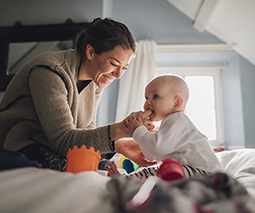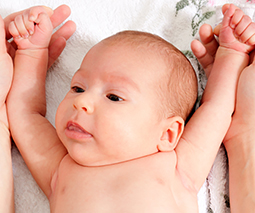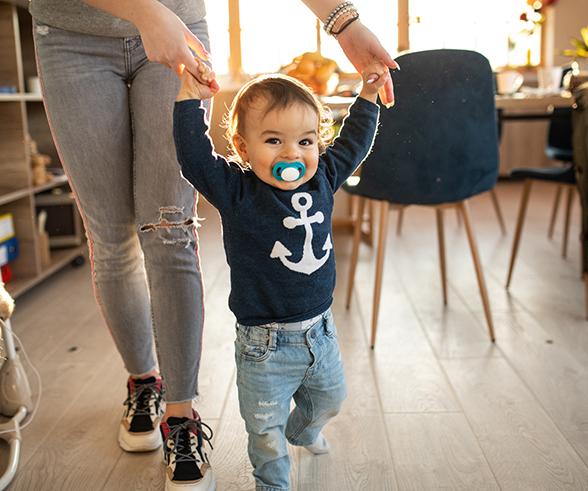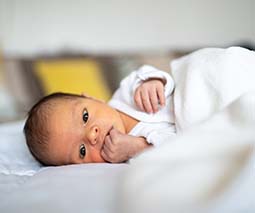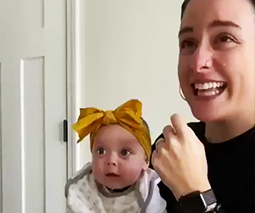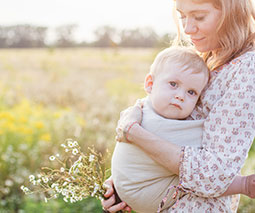Scientists discover babies might understand language better than we think!
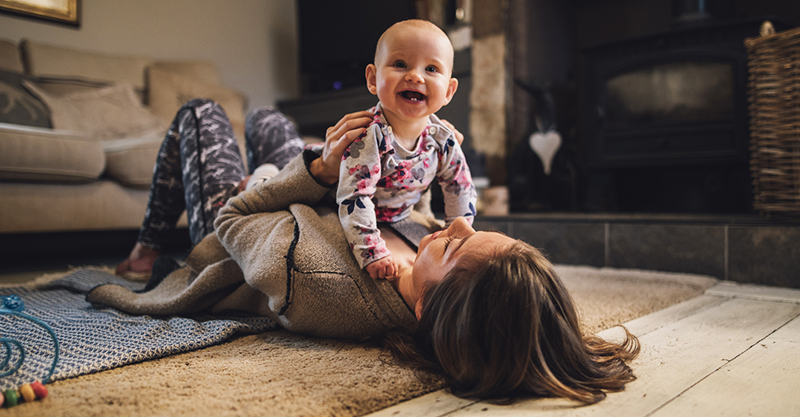
Have you ever thought your baby might understand what you’re saying, even though they can’t talk? That’s because they probably can! Scientists have just discovered that young bubs are a lot more clued up than previously thought when it comes to vocabulary and language, and parents need to take notice.
Learning to talk
Apparently the human mind stores language not like a dictionary with lists of words, but instead as a network of categories, properties and meanings with stronger connections between words that are similar – e.g. newspaper and magazine.
At six months old – months before children will start talking – babies can actually recognise many basic nouns such as ball and dog. And now a new study has revealed that babies become confused when words have similar meanings. This fact indicates that these few words are structured in a baby’s mind in a similar way to an adult’s (linked by concepts) and therefore they have a much deeper understanding of language at a younger age than we ever previously thought.
A groundbreaking study
Researchers already knew that toddlers and older kids showed the same language development patterns as adults, however this study (published recently in the Proceedings of the National Academy of Sciences) is the first to prove that even as young as six months old, babies are actually tuning in and processing what we’re saying.
What scientists did was show babies two different objects at the same time – e.g. blanket and a dog, book and a nappy, etc. – with the parent saying the name of one object and the researchers tracking where the babies looked by reflecting infrared light off their eyes. What happened was that when the words were related, e.g. nose and mouth the babies spent more time looking at the wrong picture than when they were obviously different (e.g. nose and bottle).

A confusing discovery
According to Elika Bergelson, Assistant Professor of psychology and neuroscience at Duke University and the study’s lead author, this confusion with related images implies that babies somehow understand when concepts are related. And this has been deemed an exciting discovery because it indicates that babies perhaps search for meaning, something which could then change the way we approach infant cognition in the future.
What this means for parents
Further research is required, however the more we understand about baby language development, the earlier learning difficulties and delays will be able to be detected and addressed sooner – early intervention being proved to have better outcomes.
Essentially however, Bergelson believes that what parents should take away from these new findings is that, “babies are listening, and you should treat them as conversational partners,” she said.
As if we needed another excuse to talk to our baby! Just don’t forget to keep the language G-rated as you never know what they might taking in!
Do you think your baby understands a lot of what you’re saying?
